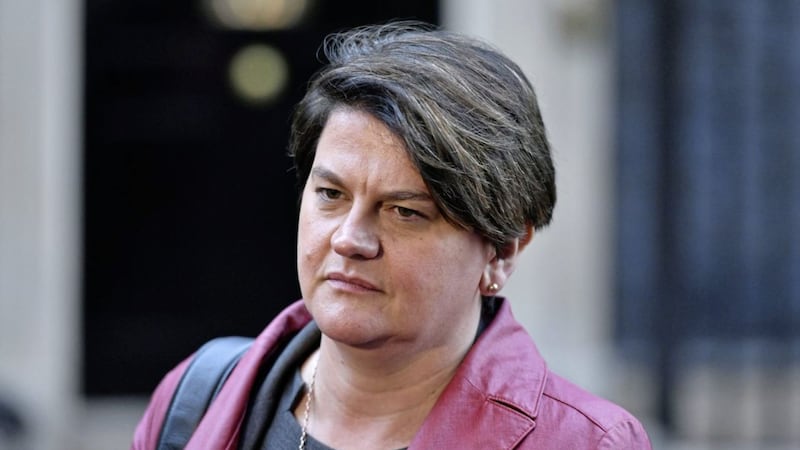Chaos in the Commons has deprived prime minister Boris Johnson of his majority, even with DUP support. What hope there was for renewal of the DUP-Conservative confidence and supply agreement has now expired and the final fig-leaf has fallen from Arlene Foster’s calamitous leadership.
Foster was handed the DUP’s reins with Northern Ireland, the Union and her party in arguably their best shape in history. A hung parliament then gave unionism the most power it has had in a century, at the most critical juncture in a century.
Yet the DUP has turned all this to dust, not just by inaction but directly by its actions, with a ruinous Brexit conclusion still to come.
Responding to developments in Westminster, Foster said: “We will fight any election on defending the Union and our record of delivery.”
Good luck with that.
**
With an election imminent, talk has inevitably turned to a ‘progressive pact’ of pro-Remain candidates, invariably described as way of sending a message to Westminster.
Brexit should have made it crystal clear the only way to send a message to Westminster is to send MPs. Every abstentionist is as good as another seat for the DUP in a Commons that could easily end up hung again.
Sinn Féin says it will not drop abstentionism but others are being more pragmatic with their principles.
At the last general election in 2017, Alliance rejected a pact by issuing a press release headlined “no electoral pacts under any circumstances.”
This week, an Alliance spokesman said pacts are “better discussed in private rather than via press release.”
One pact tradition has endured. Independent unionist Lady Sylvia Hermon is still not being invited to join, despite being Northern Ireland’s only attending Remainer MP and being at risk of losing her seat to the DUP.
Is she considered the wrong sort of ‘progressive’, for some reason?
**
Secretary of state Julian Smith has said direct rule will have to be introduced if Stormont is not restored by the October 31 Brexit deadline.
The growing prospect of a Brexit extension makes that implausible deadline a little less urgent. The Northern Ireland Office had to lay a report on Stormont progress before parliament this week - in fact, the legal requirement to debate that report is the only reason parliament remains open. There was only one real item of progress to report but it is revealing: “There has been good engagement on the Petition of Concern with the aim of reducing the frequency with which it is used; there is an emerging consensus on a number of reforms to achieve this”.
**
Belfast City Council’s plan to have 66,000 people living in the city centre by 2035, up from 3,000 at present, has been literally pooh-poohed by the Construction Employers’ Federation, which pointed out the sewage system is already at full capacity.
“We need an executive back in place to make the decisions to put in multi-year budgets and change the funding for Northern Ireland Water,” the Federation said.
This is a well-timed, or perhaps badly-timed, reminder that water charging is still lurking in Stormont’s in-tray. Parties might prefer a spell of direct rule to sort that out.
**
Sinn Féin MLA John O’Dowd has caused a sensation by challenging Michelle O’Neill for the party’s deputy leadership.
If he offers a new approach to the respect and equality agenda, it might not be the one some observers hope.
In 2013, while education minister, O’Dowd was asked why Sinn Féin and the DUP had not consulted the other three executive parties on their new cohesion, sharing and integration strategy. He infamously replied “so what?”
In 2015, a judge found O’Dowd had breached his legal duty under the Good Friday Agreement to encourage integration by refusing to allow a Catholic school to convert to integrated status, in order to keep pupils in the Catholic sector. The school and every parent wanted integration.
An industrial tribunal finding of “sectarianism” on a quango appointment is often cited against Sinn Féin MP Conor Murphy, considered a favourite to succeed O’Neill. That seems like a minor incident by comparison.
**
A section of the Comber Greenway in east Belfast that has been the site of a controversial loyalist bonfire in recent years has reopened after landscaping work. Adding a playground has previously failed to prevent the bonfire but the landscaping has converted all flat land into low hummocks, which appears to make a recurrence impossible. The potential to simply engineer public disorder out of the environment is something that deserves more serious consideration.









